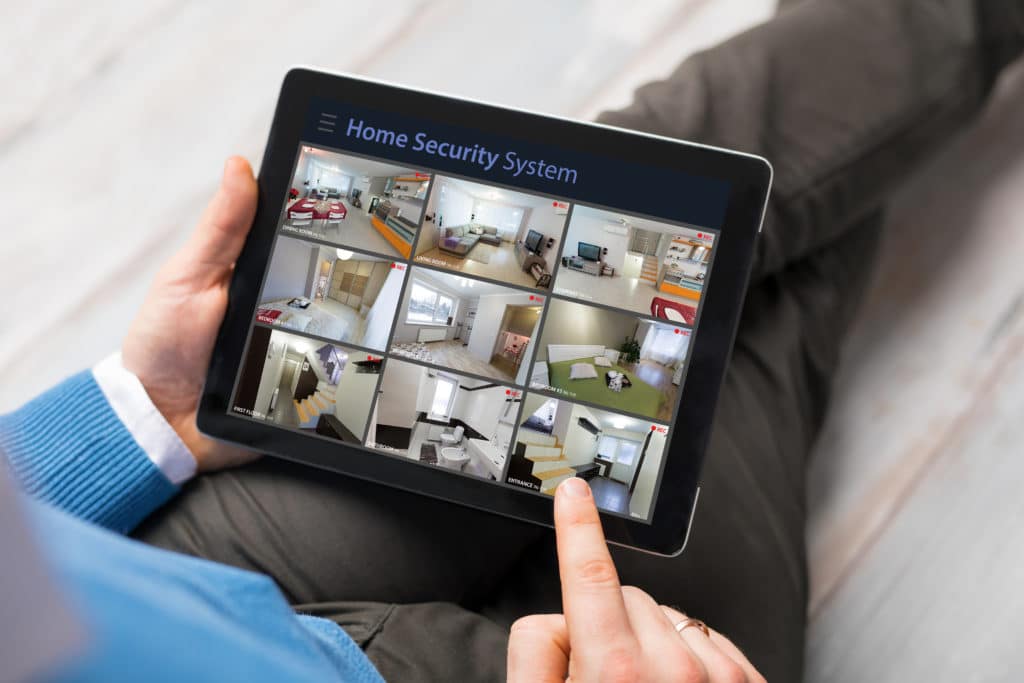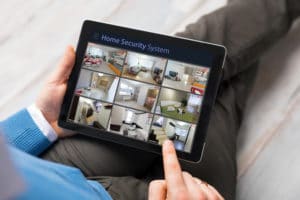There are a large number of CCTV systems being sold for domestic use. Since May 2018 people who use CCTV for domestic purposes in the UK have been granted an exemption from registering with the Information Commissioners’ Office (ICO) or paying a fee to the ICO.
The ICO states that the term, ‘domestic CCTV system’ refers to the use of any video surveillance equipment mounted or fixed on your home. It can include cameras fitted to doorbells. If you set up your system so it captures only images within the boundary of your private domestic property (including your garden), then the data protection laws will not apply to you.
However, the law will still apply if your system captures images of people outside the boundary of your private domestic property, for example, in neighbours’ homes or gardens, shared spaces, or on a public footpath or a street. Specifically, you will need to comply with the law as covered by the General Data Protection Regulation (GDPR) as it applies in the UK, tailored by the Data Protection Act 2018.
Installing Domestic CCTV? Consider other people’s privacy
The Information Commissioners’ Office recommends that regardless of whether or not your use of CCTV falls within the data protection laws, you should use it responsibly to protect the privacy of others. It recommends that you ask yourself whether CCTV is actually the best way to improve your home security as there maybe other ways to improve your security without it. These could include better lighting, more secure gates, improved door locks or an alarm system. The ICO recommends that you seek advice on crime prevention from your local police force.
If you go ahead with the CCTV you ought to consider where to place the cameras to avoid filming public spaces or other people’s property unnecessarily. If you are considering a system with auto-recording the ICO recommends that this is disabled as this can be very intrusive.
Before you install the system, the ICO also suggests that you speak to your neighbours and explain what you are doing and listen to any objections or concerns they may have. It may also be useful to invite your neighbours to view the footage you capture, the ICO says. This could relieve any concerns about the use of CCTV and avoid disputes escalating or complaints being made about any recording.
The ICO is careful to note that while the use of a domestic CCTV system may be appropriate, publicly uploading or streaming footage of identifiable people would need more justification. In most cases it would not be justifiable.
Capturing images beyond your property: Your responsibilities
One of the consequences of capturing images beyond your property boundary, and being subject to the data protection laws, is that you are deemed to be a data controller under the data protection laws. This means that you need to uphold the rights of the people whose images you are capturing.
In particular, if an individual or the ICO were to question you as to why you are capturing images beyond your property boundary you will need to be able to explain your reasons, so the ICO recommends that you write these reasons down and also explain in writing why you think capturing the images is more important than invading the privacy of your neighbours and passers-by.
You will also need to let people know you are using CCTV by putting up signs saying that recording is taking place. You will also need to ensure that you don’t capture more footage than you need to achieve your purpose in having the CCTV system.
Any images you are capturing then need to be held securely. Nobody should watch it unless they have good reason to do so. You should also only keep the footage for as long as you need it – delete it regularly, and when it is no longer needed.
The ICO says that you need to ensure the CCTV system is only operated in ways you intend and cannot be misused for other reasons. Anyone you share your property with, such as family members who could use the equipment, needs to know the importance of not misusing it.
Understanding other people’s data protection rights
You also need to make sure you respect the data protection rights of the people whose images you capture. This includes the following things:
- Responding to subject access requests (SARs), if you receive any. These are requests that individuals can make if they wish to use their right to access the personal data you hold about them, including identifiable images. They can ask you verbally or in writing. You must respond within one month and give them a copy of the data.
- Additionally, you must delete footage of people if they ask you to do so. You should do this within one month. You can refuse to delete it if you specifically need to keep it for a genuine legal dispute – in which case you need to tell them this, and also tell them they can challenge this in court or complain to the ICO.
- You must also consider any objection you get now from particular people about capturing their image in the future. Given the nature of CCTV systems, this may be very difficult to do, the ICO suggests.
If you fail to comply with your obligations under the data protection laws, you may be subject to enforcement action by the ICO. This could include a fine. You may also be subject to legal action by affected individuals, who could pursue court claims for compensation.
If you follow the ICO’s guidance and take all reasonable steps to comply with your data protection obligations, the ICO says it is unlikely to regard you as a regulatory risk and take enforcement action against you. While Ecl-ips primarily supplies its CCTV systems to the commercial market we do provide CCTV to private properties and we are able to answer questions from homeowners and help you to decide whether this is the right security option for you. If you would like some advice contact us.



